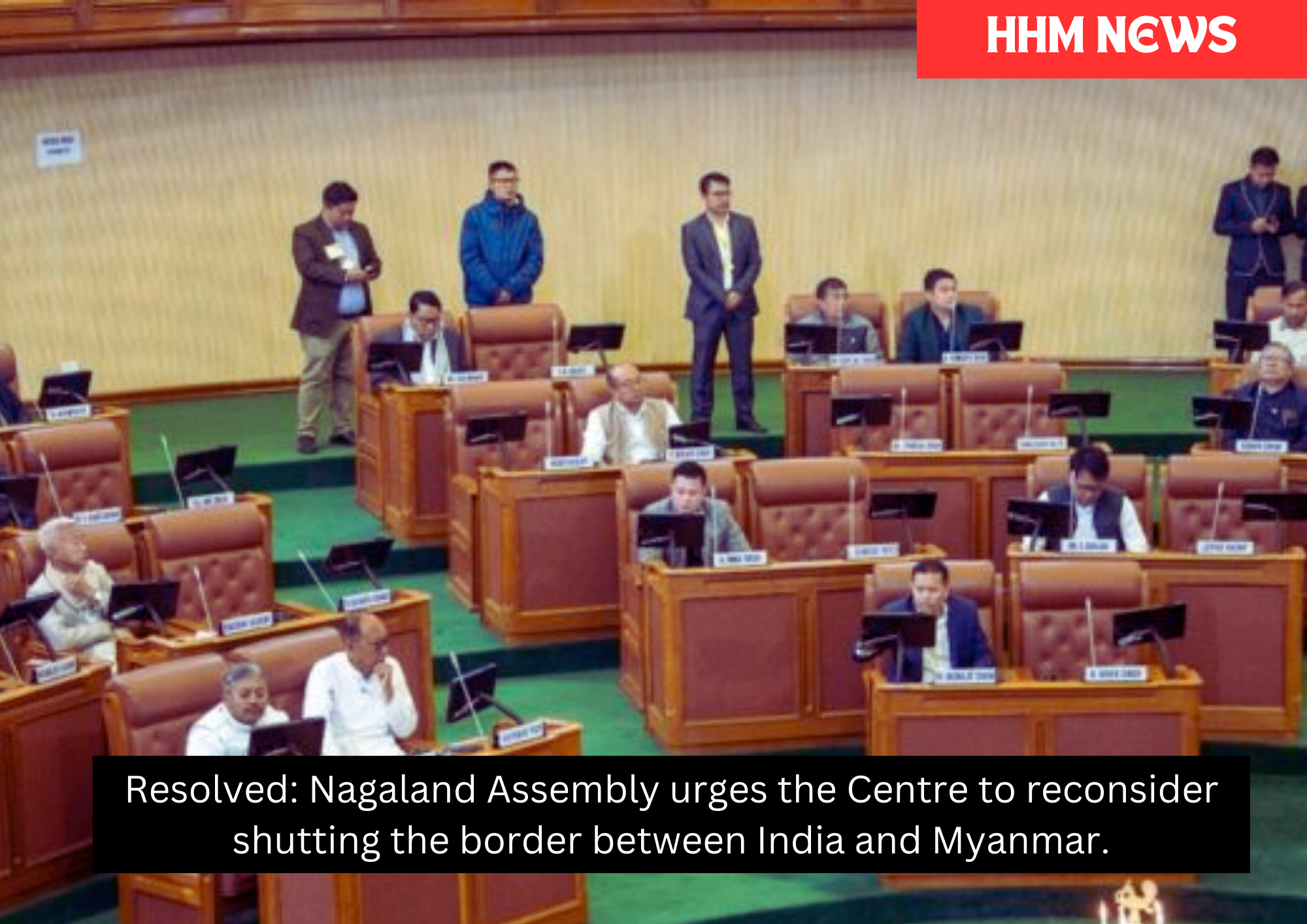In Nagaland, where the BJP and the Nationalist Democratic Progressive Party lead a coalition administration, the legislative Assembly unanimously approved a motion on Friday asking the Centre to reevaluate its decision to block the border between India and Myanmar.
The Mizoram Assembly had approved a resolution along these lines earlier this week.
The Union administration declared in February that it will fence the whole border and terminate the Free Movement Regime (FMR) arrangement with Myanmar. Tribes residing on both sides of the border were permitted by the FMR agreement to enter the other country up to 16 km away without a visa and remain for a maximum of two weeks.
The 1,643-kilometer border between India and Myanmar passes through Arunachal Pradesh, Mizoram, Nagaland, and Manipur.
The decision to discontinue FMR has been supported by the governments of Manipur and Arunachal Pradesh, but it has been opposed by civil society organizations and the governments of Mizoram and Nagaland.
The motion opposing the decision was introduced in the Nagaland Assembly by BJP deputy chief minister Y Patton. This is the Nagaland government’s most forceful and explicit position on the matter.
There are strong ethnic relations between Mizoram and Nagaland and Myanmar. The ethnic groups of the Mizos in Mizoram and the Chins in Myanmar are the same. A sizable Naga community also exists in Myanmar, primarily in the Naga Self-Administered Zone in the country’s Sagaing region.
According to the resolution passed by the Nagaland Assembly, the traditional land holding system straddles the international border in many places, and people must cross it every day in order to carry out their regular agricultural activities. As a result, the Naga people living in the Indo-Myanmar border areas would suffer “agony” as well as “hardship and inconvenience” from the end of the FMR and border fencing.
The long-standing historical, social, tribal, and economic relationships of the Naga people living on both sides of the international border would be “seriously disrupted,” according to the statement.
The resolution asked the Centre to reevaluate its choice and demanded that the village council authorities and the residents living along these boundaries engage in a consultation process to develop norms for cross-border travel.
The other deputy chief minister for Nagaland, T R Zeliang, stated that the Nagas on both sides of the border “lived as free people without any artificial borders until the Treaty of Yandabo in 1826 which established the current India-Myanmar boundary” during the Assembly’s debate on the issue of the Indo-Myanmar border.
The decision to shut down the border was based on security concerns, which have been raised since unrest broke out in Manipur last year. These worries include the flow of illegal immigrants, drug use and smuggling, and the freedom of rebels to travel and seek refuge in Myanmar.
In the context of Nagaland, Zeliang deemed these factors to be “precarious and unjustified.”
The Chin-Kuki-Meitei problem cannot be equated with the Naga situation, he said, because the Naga people have been living together peacefully as a family, unlike the case of the Chin-Kuki-Meitei in Manipur or other parts of India, and because “the issue of the entry of illegal immigrants, like that of the Chins, Rohingyas, etc. into India has no similarity with the Naga issue.”
BY –HHM
